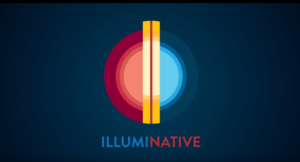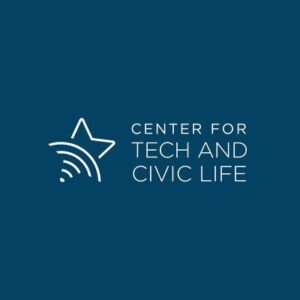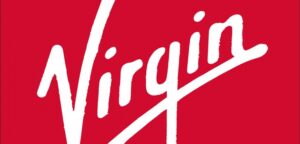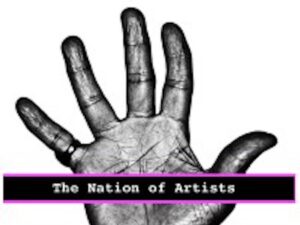Nex Cubed is a venture accelerator that invests in underrepresented founders and under-served communities. Their HBCU Founders Accelerator invests in startups where at least one founder is an HBCU student, alum, or faculty member. Nex Cubed seeks to help train the next generation of Black venture capitalists.
Marlon Evans of Nex Cubed spoke with Ashley Hopkinson on January 16, 2024. Click here to read the full conversation with insights highlighted.
Ashley Hopkinson: Can you start by introducing yourself and talking about the problem you’re trying to solve? How do you see your organization solving it?
Marlon Evans: I’m Marlon Evans, CEO at Nex Cubed, and the founder of the HBCU [Historically Black Colleges and Universities] Founders Initiative. The problem we’re trying to solve at the HBCU Founders Initiative is how to provide students, alumni, and faculty members access to the resources they need to launch startups and essentially drive innovation. The void that we’re trying to fill is around connectivity.
Ashley Hopkinson: Do you feel that what’s missing is the community and the connection, or the resources, or a combination of those things?
Marlon Evans: A combination of things. What we found when we first launched the project in 2020, when there were a lot of resources going into HBCUs, was that it ended up being a lot of great point-in-time activity. A corporation or a foundation would come in and say, “Hey, let’s do a hackathon, let’s do a pitch competition, let’s do a business plan planning program.” Then once that event was over, there was no follow-through. Where we try to jump in is in the afterward, when people are saying, “I have an idea! Now what do I do?”
Unfortunately, in many of the communities surrounding HBCUs, there’s no access to early-stage funding, angel funders, or friends and family who can support those fledgling ideas. There are not a lot of folks they can look to in the community itself who have been there, done that, and who have launched successful companies, and maybe are on their third and fourth company. That human resource element was missing. So we try to fill both of those voids.
Ashley Hopkinson: Who would you say you’re primarily serving? Do you feel like it’s the students, or it’s the community at large?
Marlon Evans: It starts with the students. If we’re thinking in concentric circles, that’s the first circle. Clearly, our hope is that they’re launching businesses in their communities, and therefore are having an impact on hiring, job creation, and wealth building in their community. Then they’ll be in a position to contribute back to the HBCUs through donations and helping build their endowments. We feel that, ultimately, it gets to the surrounding community and the school, but the starting point is the students.
Ashley Hopkinson: How are you reaching people? How do you determine, “Okay, we’re working with these HBCUs in these cities?” Because there are a lot, which is a great thing.
Marlon Evans: When we started in 2020, it was during COVID, so everything was virtual. We open-sourced our acceleration curriculum and said, “Come one, come all.” We did direct outreach to student groups, sororities, fraternities, and clubs, and said, “Hey, we’re launching this program.” The response was overwhelming to the point where we ended up spinning it out as its own 501(c)(3). Throughout that process, we started to see interest swell up. We’d hear, “There are 15 students from Xavier and there are 20 from Morehouse interested in having a program at their campus.”
We rolled out dedicated programs at seven campuses to start. We added five this past year. We continue to do virtual work, as well, to make sure that even if you don’t have a dedicated program on your campus, you can still get involved. It was more of a grassroots approach at first, and then we pulled in the administration because we realized that with all the red tape at universities, if we started with the administration, we would probably still be talking.
So we started the program and then, after we had a lot of interest, we went back to the administration and said, “Do you know that 20 of your students have already participated? Now let’s codify things at the administrator level.” That worked for us.
Ashley Hopkinson: What would you say makes your approach distinctive, beyond being distinctive simply by working with HCBUs? What makes the work you do distinctive in the space of other organizations serving HBCUs?
Marlon Evans: We want to remove any barriers that might get in the way of this being successful. Oftentimes, people will say, “Let’s give a donation to this school and tell them here’s a program that you should take advantage of.” They leave it to the institution to execute the program, which is often asking people who are already doing two or three different jobs to add another job to their list just to get the funding that they’re serving up. We take care of the execution of the program, which I think is somewhat distinctive. We make a donation to the school as well as run the program because we ask each school to have a campus lead who can help us do things like reserve rooms and put stuff in the newsletter. We want to be sensitive that we are asking for time, so we remunerate schools for that.
This has been our bread and butter at Nex Cubed. It really is about the humans who are engaged in the process. It’s not just a curriculum. We have advisors who we compensate to be TAs [teacher assistants], if you will, throughout the curriculum. They’re holding group sessions for the teams at a particular school and offering office hours where they can meet with the team directly. We’ve found in all of the surveys [we’ve administered], that students feel the most important element to this work, outside of what they’ve learned, is having an actual human who cares about their idea and is following up with them and encouraging them to continue to pursue it.
That is unique. When you’re trying to do something at this scale, the easy thing to do would be to say, “It’s formulaic. Here are modules one, two, and three.” It’s easy to forget the human element.
Ashley Hopkinson: Having a facilitator, or coach, to work with the campus lead to see this all the way through is so effective. It’s not just the one-touch approach.
Marlon Evans: Yes. It’s an eight-week period, and there’s a deliverable at the end. They’ll have an investor pitch deck that they can then use to try and raise funding. We take it from the theoretical to something tangible. We’re excited to see more entrepreneurship and innovation centers at various institutions, but at many of these schools, that’s still usually in the abstract. There’s a lot of talk around “This is what you need to do” versus the push to go out and do it. Talk to your friends and try to sell them on a particular business. Create an Instagram or whatever it is that makes it real for you. That’s the only thing we ask of them. The project doesn’t have to be at a certain stage, and they don’t have to know X amount about entrepreneurship or innovation. They just have to be working on an idea that they’re passionate about. That’s all we need to see.
Ashley Hopkinson: How do you guys as an organization measure success? What’s the evidence that you’re moving toward these aims that you set out?
Marlon Evans: Part of the reason why we spun this out as a 501(c)(3), and not a for-profit, is that we didn’t want to wear our investor hats in determining whether we should work with a student or not. It is more about building an entrepreneurial mindset than it is about the actual business that they’re working on. They’re gaining tools around, “How do I present myself? How do I pitch ideas? How do I encourage others to come on board with what I’m trying to do?” Those are all skills that will be applicable whether they start their own company or go work for Google or Amazon and become an intrapreneur within those organizations.
First and foremost, we assess whether the student has a general understanding of innovation and business and the entrepreneurial mindset we’re looking for at the end of the program. From a numerical level, we have student completion of the program and net promoter score-type surveys that we offer. In addition, some of these businesses are getting launched, so we look at whether they’re able to go out and raise funding. We’re looking at dollars raised, and then as this matures, the companies start and the jobs created in the community, but that’s more long-term.
In the short term, it’s very much, “After going through our eight-week program, do you have an entrepreneurial mindset? Are you curious? What did you learn about yourself through the program?” We’re focusing on the more qualitative factors around the participants.
Ashley Hopkinson: Do you have an example that illustrates the impact of your work so far? Maybe a story that feels like, “Oh, this is why we’re doing what we’re doing, and this is why we wanted it this way?”
Marlon Evans: Certainly, the testimonials that we hear from students around the impact that the program had on them. We are investors, so that’s the lens through which we look at it. When there’s success in the program from a business perspective, that is usually a good indicator that we’re preparing these teams. We started with Nex Cubed, and we launched this pilot program to support HBCU students. We spun it out of the zone 501(c)(3) to provide the programming at scale, and then we launched a venture capital fund that’s investing exclusively in teams where there’s at least one HBCU grad.
From where we started to now, there have been two companies that went through our initial pilot program, non-profit work, and then received 120K investment from the fund. We started with D’Angelo and Kyla when it was just an idea, a concept, and now they’re out raising capital. They have customers. Again, that’s not the only metric for success for us, but ultimately the hope is that if we have enough success stories, it won’t just be the HBCU Founders Initiative or a fund that’s looking to cultivate entrepreneurs at HBCUs, but all VCs [venture capitals], all angels, all folks who are saying, “If we don’t go to Dillard, we might be missing out on a company that’s going to change the world.” Right now, most of it is anecdotal, one case here and one case there. What if there were hundreds of cases every year? Then there’s no disputing that if you’re a VC, your investors are going to be asking, “How come you’re not getting access to any of these deals?” They’re going to have to change their behavior. That’s part of what we’re hoping will help wave the flag for all of the untapped talent that you see at HBCUs.
Ashley Hopkinson: What insights or teachable lessons can be taken from the work you do? What advice would you give to someone who wants to replicate what you did, or who wants to enter this space? What have you learned?
Marlon Evans: This is hard work. There’s no magic bullet to executing the programming, no trying to detach it and make it strictly software. There’s a people element to this, and it often means being persistent and not being disappointed when you realize, “I’m bringing this amazing opportunity to this HBCU, and they’re not giving me the time of day. They’re not calling me back, so I’m going to go elsewhere.” We were really intentional when we started about not only going to the usual suspects that we knew had a lot of resources, like the Howards of the world, because we wanted to go where there was significant need. But where there’s need, there’s probably a lack of resources and lack of ability to implement some of these opportunities. I guess the insight would be that it’s hard work, so if you can think about ways you can remove any of the obstacles that might be in the way of a school being able to jump on board and adopt the program, try to bake that into the model.
Lastly, one thing that we tell our for-profit startups and emphasize in the program is that at the outset, you’re doing a lot of things that don’t scale, but don’t be afraid of that. You might start by requesting an advisor for every six teams, then you start doing the math and you say, “No, that’s not a good model.” Just do it and see how it works. Who knows how you might be able to implement it ultimately?
We were fortunate in that we had a strong advisor network, we were able to raise philanthropic support, and those companies wanted to activate their employees as volunteers. Maybe you’ll [get unexpected support and realize], “Wait a second, we could provide an advisor for every five teams.” Doing things that don’t scale initially gives you a lot of learnings, and there may be another way, another solution, down the road.
Ashley Hopkinson: I think you learn as much from things that don’t pan out as you do from things that work and excel. Do you have an example that you can share of something you tried that didn’t work at all, or that fell below what you expected? What did you learn from that, or what was the silver lining?
Marlon Evans: The biggest takeaway for us over these last couple of years is the importance of the messaging you lead with. We led with entrepreneurship, and this message of, “Hey, if you have an idea, here’s a great program for you.” There were a lot of folks who self-selected themselves out of that process because they felt, “I’m not an entrepreneur. I’m not Mark Zuckerberg. I can’t start the next big business.” We missed out on a lot of talent because of that. In reality, you don’t need to have a ton of business acumen or experience. You just have to be curious, or interested in solving a problem.
Now, we initiate some of our efforts on campus through what we call Designing for Social Good workshops, where we focus on a specific challenge. We’ve done food insecurity and mental health, and we’re headed to Prairie View this week to do one on climate tech. The messaging is more like, “Hey, are you interested in sustainability? Are you interested in your community and giving them better access to renewable energy?” and less about, “Do you have a business that you want to accelerate?” We had to create a waitlist for our climate tech event. We thought there were going to be 50 students, but 75 students signed up. Then 80 students signed up. We had to cap it because of space constraints and resource constraints, but it just underscored.
The same thing happened in North Carolina A&T when we did the food insecurity event. There were over 70 students. Whereas when we had been going in and trying to recruit students to participate in the pre-accelerator, we were lucky to get 10 or 12 applications. That was a big learning for us. Sometimes, your messaging might be causing folks to question whether they are a good fit for your program. All it took was a bit of a language shift from entrepreneurship to innovation and problem-solving for us to engage a lot more students.
Ashley Hopkinson: How would you say you’re working towards systems-level change? Do you see Nex Cubed in that space? Do you feel like you’re advancing systems-level change through the HBCU partnerships?
Marlon Evans: I would say we’re just scratching the surface there because we’re heads down in implementing the programs. We have partnered with UNCF [United Negro College Fund], which is thinking systems level. We say, “Let us know what we need to do, sign us up to go talk to whoever at a policy level, or even at a senior administration level at HBCUs, or to government officials.” But we haven’t led the charge on the systems policy-wide. What we’re trying to do, from an HBCU by HBCU basis, is set up an infrastructure. There are 100 plus HBCUs out there, and we’re likely not going to be able to serve all 100 concurrently. Can we get them to a place where we’ve built up enough local capacity that they can do this on their own, with limited support from us? That’s what we’re driving towards. We haven’t dipped our toe in the water beyond that.
Ashley Hopkinson: In the earlier part of our conversation, we were talking about the big investments that came in 2020. Is there a flip side to that? What is needed for investment to be sustained in the area of HBCUs, so it doesn’t feel like it’s a trending topic?
Marlon Evans: I think right now, given the political environment, we’re getting a lot of, “We’re rethinking our strategy.” We’re now almost four years post-George Floyd, and I think there is somewhat of a step back. We’re myopic in the sense that we view a lot of it through the lens of entrepreneurship, and we realize that for this to be sustainable, we’re going to need to start creating wealth within the HBCU community versus waiting for outside forces to say, “It’s time to make an investment.” If we can create that wealth through launching new businesses that are creating jobs, which then create enough wealth for those individuals to make donations back to their institutions, then we do think it’s more of a business case than a philanthropic case for why corporations and other investors should be looking at HBCUs.
There is currently a business case for talent, but I feel like the rest of it is more philanthropic than investor-driven. We need to have more examples of why you have to be on the ground floor of these opportunities because there’s so much value being created. I don’t think we can make that case quite yet.
Ashley Hopkinson: Aside from fundraising for Nex Cubed, what would you say are some of the challenges that you guys are working through?
Marlon Evans: Part of it is the turnover at the HBCU administrator level. We’re a little more than 10% of all the HBCUs, so I suspect we can extrapolate somewhat of a data set there. We started by rolling it out to seven schools, and we had campus leads at each of the seven. In just one year, there was a turnover of more than 50% of the campus leads. They either went to a different department or left the institution.
When that happens, you have to rebuild a relationship. The first learning for us there was that while there needs to be a central point of contact, we also need to be getting our tentacles into the rest of the university, building relationships with others, and getting them involved in some way, so there’s a level of ownership across the institution.
Two would be getting more visibility at the senior level, at the provost level, because getting their endorsement of the work has a trickle-down effect. Other administrators may give the program more of a glance if they know that it’s being supported at the senior level. I’d probably say those are the biggest challenges that we’ve had to overcome in wanting to ingrain ourselves in an institution. Because of the nature of our work, students are turning over every few years, so we need to establish relationships at that administrator level. Now, we’re learning to navigate the turnover we are finding there.
Ashley Hopkinson: How do you see your work evolving over the next five years?
Marlon Evans: We haven’t by any means proven the model yet, but I think we’ve learned a lot over these last three years as to how you can help build an innovation ecosystem on a campus, both with funding and with human resources. Expanding that out beyond HBCUs to minority-serving institutions in general, and thinking about how we can replicate the model to support Hispanic-serving institutions [is a major goal]. That’s an evolution just from a scale perspective. The actual nuts and bolts of what we do would remain the same.
The other component is how we are building capacity at the local level so we end up being a resource that helps institutions stay abreast of the latest innovations happening within sectors. We can pull together funders and speakers, but the lion’s share of the activity is happening on the ground. That’s really where the change occurs, so we hope that we end up being a bridge to these other ecosystems, such that you can access Silicon Valley and Sandhill Road without leaving Greensboro, North Carolina. You don’t have to move to do that because we’re here, and we’ve been able to connect those dots on your behalf.
If we’re more of a centralized platform five years from now, with more knowledge sharing, more best practices, and more resources, and the schools are at a point where they’re able to execute 90% of the program, that would be awesome.
Ashley Hopkinson: Wonderful. Thank you.
Click here to read the full conversation with insights highlighted.
Ashley Hopkinson is an award-winning journalist, newsroom entrepreneur and leader dedicated to excellent storytelling and mission-driven media. She currently manages the Solutions Insights Lab, an initiative of the Solutions Journalism Network. She is based in New Orleans, Louisiana.
* This interview has been edited and condensed.
Learn about other organizations that provide social innovations in racial equity.







